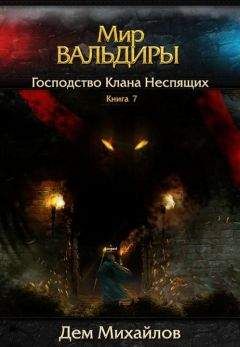Дмитрий Ушаков - Психология интеллекта и одаренности
Piaget J. Quantification, conservation and nativism // Science. 1968. 162. P. 976–979.
Piaget J., Inhelder B. La representation de l’espace chez l’enfant. Neuchatel: Delachau, Niestlé, 1947.
Planche P. Modalites fonctionnelles et conduites de resolution de problémes chez l’enfant de cinq, six et sept ans d’age chronologique // Archives de psychologie. 1985. 53. 207. P. 411–415.
Planche P. Precocite intellectuelle: fonctionnement cognitif et dysharmonie // Actes du XXVIe congrés de psychologie a Montreal. International journal of psychology. 1996. 31. P. 371.
Planche P. La construction des notions spatiales chez les enfants intellectuellement precoces, ages de 6 a 8 ans // Enfance. 1998. 2. P. 159–171.
Planche P. Les strategies de décentration centration spatio-cognitive chez les enfants intellectuellement précoces de 6 ans // Bulletin de psychologie. 1999. 52 (4). P. 473–480.
Plomin R. Development, genetics and psychology. Lawrence Erlbaum Ass., 1986.
Plomin R., DeFries J. C. A parent-offspring adoption study of cognitive abilities in early childhood // Intelligence. 1985. 9. P. 341–356.
Politzer G., Nguyen-Xuan A. Reasoning about conditional promises and warnings: Darwinian algorithms, mental models, relevance judgements or pragmatic schemas? // Quarterly Journal of Experimental Psychology. 1992. 44 (3). P. 401–421.
Pollins L. D. The effects of acceleration on the social and emotional development of gifted students // C. P. Benbow, J. C. Stanley (eds). Academic precocity. Baltimore, MD: Johns Hopkins University Press, 1983. P. 160–178.
Posner M. I., Mitchell R. F. Chronometric analyses of classification // Psychological Review. 1967. 74. P. 392–409.
Price D. Little science, big science. N. Y.: Columbia University Press, 1963.
Raven J. A model of competence, motivation and behavior and a paradigm for assessment // H. Berlak (ed.). Assessing academic achievement: issues and problems. 1991.
Reber A. S. Implicit learning of artificial grammars // Journal of Verbal Learning and Verbal Behavior. 1967. V. 6. P. 855–863.
Reber A. S. Transfer of syntactic structure in synthetic languages // Journal of Experimental Psychology. 1969. V. 81. P. 115–119.
Reber A. S. Implicit learning of synthetic languages: The role of instructional set // Journal of Experimental Psychology: Human Learning and Memory. 1976. V. 2. P. 88–94.
Reber A. S. Implicit learning and tacit knowledge: An essay on the cognitive unconscious. N. Y.: Oxford University Press, 1993.
Record R. G., McKeown T., Edwards J. H. The relation of measured intelligence to birth order and maternal age // Annals of Human Genetics. 1969. 33. P. 61–69.
Renzully J. S., Reis S. M. The Schoolwide Enrichment Model. A how-to guide for educational excellence. Connecticut: Creative Learning Press, Inc., 1997.
Retherford R. D., Sewell W. H. Birth order and intelligence: Further tests of the confluence model // American Sociological Review. 1991. 56. P. 141–1 5 8.
Reuchlin M. Processus vicariants et différences individuelles // Journal de psychologie. 1978. 2. P. 133–145.
Riley C. A., Trabasso T. Comparative logical structures and encoding in a transitive inference task // Journal of Experimental Child Psychology. 1974. 17. P. 187–203.
Rips L. Deduction // R. J. Sternberg, E. E. Smith (eds.) The psychology of human thought. Cambridge: Cambridge University Press, 1991. P. 116–153.
Rivero L. Creative home schooling for gifted children: A resource guide. Scottsdale, AZ: Great Potential Press, 2002.
Roberts J., Engel A. Family background, early development, and the intelligence of children 6–11 years. US Department of Health, Education and Welfare, 1974.
Roe A. The making of a scientist. N. Y.: Dodd, Mead, 1952.
Roe A. A psychological study of eminent psychologists and anthropologists, and a comparison with biological and physical scientists // Psychological Monographs: General and Applied. 1953.
Rogers K. B. Do the gifted think and learn differently? A review of recent research and its implications for instruction // Journal of Education for Gifted. 1986. 10. P. 17–39.
Rosen B. C., d’Andrade R. The psychological origin of achievement motivation // Sociometry. 1959. 22. P. 185–218.
Rosenthal R. R., Jacobson L. Pygmalion in the Classroom. N. Y.: Holt, Rinehart and Winston, 1968.
Ryan D. E., Lakie W. L. Competitive and noncompetitive performance in relation to achievement motive and manifest anxiety // Journal of Personal Social Psychology. 1965. 1. P. 342–345.
Sapp G. L., Chissom B. Factor analysis of the WISC-R for gifted students. Psychological Reports. 1985. 57. P. 947–951.
Scarr S. Behavior-Genetic and Socialization theories of intelligence: Truce and reconciliation // R. J. Sternberg, E. Grigorenko (eds.) Intelligence, heredity, and environment. Cambridge University Press, 1997. P. 3–41.
Scarr S., Carter-Saltzman L. Genetics and intelligence // R. J. Sternberg (ed.). Handbook of human intelligence. Cambridge, England: Cambridge University Press, 1982.
Scarr S., Weinberg R. A. The Minnesota adoption studies: genetic differences and malleability // Child development. 1977. 54. P. 260–268.
Schacter S. Birth order, eminence and higher education // American Sociological Review. 1963. 28. P. 757–768.
Schank R. C. Active memory. N. Y.: Cambridge University Press, 1986.
Schnall S. Life as the problem: Karl Duncker context // From past to future. V. 1 (2). The drama of Karl Duncker. P. 13–28. Clark University, 1999.
Schuldberg D. Schizotypal and hypomanic traits, creativity, and psychological health // Creativity Research Journal. 1990. 3. P. 218–230.
Schustack M. W. Thinking about causality // R. J. Sternberg, E. E. Smith (eds). The psychology of human thought. Cambridge University Press. 1991. P. 92–115.
Schwarz N. Feelings as information: Informational and motivational functions of affective states // E. T. Higgins, R. Sorrentino (eds). Handbook of Motivation and Cognition: Foundations of Social Behavior. N. Y.: Guilford Press, 1990. 2. P. 527–561.
Schwartz S. H. A theory of cultural value orientations: Explication and applications // Y. Esmer, T. Pettersson (Eds.) Measuring and mapping cultures: 25 years of comparative value surveys. Leiden, The Netherlands: Brill, 2007. P. 33–78.
Seligman M. E. P., Hager J. L. Biological boundaries of learning. N. Y.: Appleton-Century-Crofts, 1972.
Shayer M. Neo-Piagetian theories and educational practice // International Journal of Psychology. 1987. 22. P. 245–264.
Shore B. M., Delcourt M. A. B. Effective curricular and program practices in gifted education and the interface with general education // Journal of Education for Gifted. 1996. 20. P. 138–154.
Siegler R. Mechanisms of cognitive growth: Variation and selection // R. J. Sternberg (ed.). Mechanisms of cognitive development. 1984. P. 141–16 2.
Siegler R. Children thinking. Englewood Cliffs, NJ: Prentice-Hall, 1986.
Silverstein A. B. Factor structure of the Wechsler Adult Intelligence Scale – Revised // Journal of Consulting and Clinical Psychology. 1982. 50 (5). P. 661–664.
Simon H. Making management decisions: the role of intuition and emotion // Academy of management executive. 1987.
Simon H. Karl Duncker and cognitive science // From past to future. V. 1 (2). The drama of Karl Duncker. Clark University, 1999. P. 1–12.
Simonton D. K. Creative productivity and age: A mathematical model based on a two-step cognitive process // Developmental Review. 1984. 4. P. 77–111.
Simonton D. K. Creativity, leadership, and chance // R. J. Sternberg (ed.). The nature of creativity. Cambridge University Press. 1988. P. 386–426.
Skeels H. M. Adult status of children with contrasting early life experiences: a follow-up study. Society for research in child development, 1966.
Smith M., Glass G. Meta-analysis of psychotherapy outcome studies // American Psychologist. 32. 1977. P. 752–760.
Southern W. T., Jones E. D. Academic acceleration: background and issues // W. T. Southern, E. D. Jones (eds). The academic acceleration of gifted children. N. Y.: Teachers College Press, 1991. P. 1–29.
Southern W. T., Jones E. D., Stanley J. C. Acceleration and enrichment: the context and development of program options // K. A. Heller, F. J. Monks, A. H. Passow (eds). International handbook of research and development of giftedness and talent. Oxford: Pergamon, 1993. P. 3 87– 4 0 9.
Spelke E. S. Initial knowledge: Six suggestions // Cognition. 1994. 50. P. 4 31– 4 4 5.
Stanley J. C., Benbow C. P. Youths who reason exceptionally well mathematically // R. J. Sternberg, J. E. Davidson (eds). Conceptions of giftedness. N. Y.: Cambridge University Press, 1986. P. 362–387.
Stanley J. C., Brody L. E. History and philosophy of the Talent Search model // Gifted and talented international. 2001. 16. 2. P. 94–96.
Sternberg R. J., Davidson J. E. The mind of the puzzler // Psychology Today. 1982. 16. P. 37–44.
Sternberg R. J., Gardner M. K. A componential interpretation of the general factor in human intelligence // H. J. Eysenck (ed.). A model for intelligence. Berlin: Springer Verlag, 1982. P. 231–254.
Stone K. M. A cross-cultural comparison of the perceived traits of gifted behavior // Gifted and Talented International. 2002. 17. 2. P. 61–75.
Storfer M. D. Intelligence and giftedness: the contribution of heredity and early environment. San Francisco, Oxford: Jossey-Bass Publishers, 1990.
Subotnik R. F., Steiner C. L. Adult manifestation of adolescent talent for science: A longitudinal study of 1983 Westinghouse science talent search winners // R. F. Subotnik, K. D. Arnold (eds). Beyond Terman: Contemporary longitudinal study of giftedness and talent. Norwood, NJ: Ablex, 1995. P. 52–76.
Taylor H. F. The IQ game: a methodologic inquiry into the heredity-environment controversy. New Brunswick, NJ: Rutgers University Press, 1980.
Taylor R. L., Sternberg L. Exceptional children: integrating research and teaching. N. Y.: Springer Verlag, 1989.
Terrassier J.-Ch. Les enfants surdoués ou «la précocité embarrassante». Paris: ESF, 1999.
Tooby J., Cosmides L. Evolutionary psychology and the generation of culture: 1. Theoretical considerations // Ethology and Sociobiology. 1989. 10 (1–3). P. 29–49.
Torrance E. P. The nature of creativity as manifest in its testing // R. J. Sternberg (ed.). The nature of creativity. Cambridge: Cambridge University Press, 1988. P. 43–75.
Trabasso T. The role of memory as a system in making inferences // R. V. Karl, J. W. Hagen (eds). Perspectives on the development of memory and cognition. Hillsday, New Jersey: Erlbaum, 1977.
Trabasso T., Riley C. A. The construction and use of representations involving linear order // R. L. Solso (ed.). Information processing and cognition. Hillsday, New Jersey: Erlbaum, 1975.
Trabasso T., Riley C. A., Wilson E. G. The representation of linear order and spatial strategies in reasoning: a developmental study // R. J. Falmagne (ed.). Reasoning: representation and process. N. Y., 1975.
Treffinger D. Teaching for self-directed learning: A priority for the gifted and talented // Gifted Child Quarterly. 1975. 19. P. 46–59.
Van der Linden D., te Nijenhuis J., Bakker A. The General Factor of Personality: A meta-analyses of Big Five intercorrelations and a criterion-related validity study // Journal of Research in Personality. 44. 2010. P. 315–327.
Van Tassel-Baska J. Contributions to gifted education of the Talent Search concept // C. P. Benbow, D. Lubinsky (eds). Psychometric and social issues concerning intellect and talent. Baltimore, MD: Johns Hopkins University Press, 1997. P. 160–178.
van Dijk T. A., Kintch W. Strategies of discourse comprehension. N. Y.: Academic Press, 1983.
Vernon P. A. Speed of information processing and general intelligence // Intelligence. 1983. 7. P. 53–70.
Vernon P. A. The heritability of measures of speed of information processing // Personality and Individual Differences. 1989. 10. P. 573–576.
Veroff J., Feld S. C., Gurin G. Achievement motivation and religious background // American Sociological Review. 1962. 27. P. 205–217.
Vialle W., Quigley S. Does the teacher of the gifted need to be gifted? // Gifted and Talented International. 2002. 17. 2. P. 85–90.
Vineberg R., Taylor E. N. Performance in four Army jobs by men of different aptitude (AFQT) levels. Washington, DC: U. S. Department of the Army, 1972.
Visher S. S. Environmental background of leading American scientists // American Sociological Review. 1948. 13. P. 65–72.
Volken T. The Impact of National IQ on Income and Growth: A Critique of Richard Lynn and Tatu Vanhanen’s Recent Book // European Sociological Review. 2008. 19. P. 411–412.
Wagner M. E., Schubert H. J., Schubert D. S. Effects of sibling spacing on intelligence, interfamilial relations. Psychosocial characteristics, and mental and phisical health // Advances in child development and behavior. 1985. 59. P. 149–206.
Wallace A. The Prodigy: A Biography of Wiliam James Sidis, the World Greatest Child Prodigy. London: Macmillan, 1986.
Wallas G. The art of thought. 1926.
Wallerstein R. S. Forty-two lifes in treatment. A study of psychoanalysis and psychotherapy. N. Y.: Guilford, 1986.
Wason P. C. Reasoning about a rule // Quarterly Journal of Experimental Psychology. 1968. 20. P. 273–281.
Weede E., Kampf S. The Impact of Intelligence and Institutional Improvements on Economic Growth // Kyklos. 2002. 55. P. 361–380.
Weiner B. An attribution theory of motivation and emotion. N. Y.: Springer, 1986.




